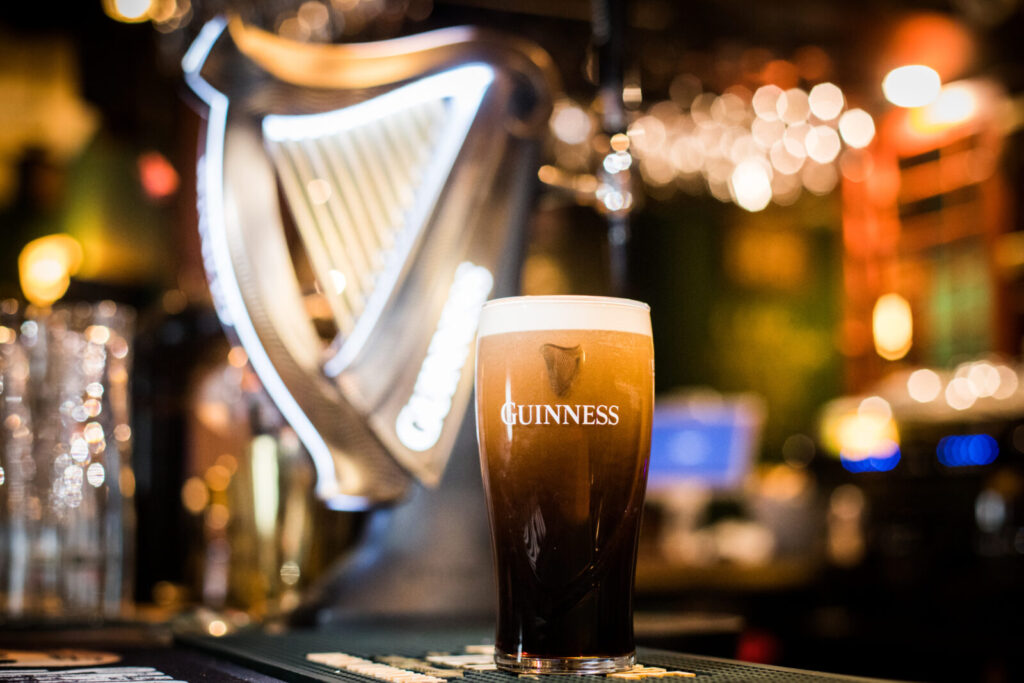Brief • 3 min Read
In The Harris Poll Tracker (Week 107) fielded March 11th to 13th, 2022 among 2,000 U.S. adults, we look at how Americans’ concerns have shifted away from COVID-19 and from Week 106 how younger consumers are engaging with international brands regularly. In addition, we cover other Harris Poll data detailing how Americans are packing their bags for summer vacations, how men are more interested in the future of the metaverse, and an industry snapshot of the health and personal care sector.
Tune in for our America This Week: From The Harris Poll audio event this Friday at 10am EST on LinkedIn for a data driven discussion between our CEO John Gerzema and CSO Libby Rodney. They’ll be covering the latest trends in society, the economy, and the consumer marketplace.
Check out our OAAA-Harris Poll webinar for actionable insights on key spring and summer retail seasons and consumer summer travel intent.
As a public service, our team has curated key insights to help leaders navigate COVID-19. Full survey results, tables, and weekly summaries can be accessed for free at The Harris Poll COVID-19 Portal. We will continue to actively field on a regular cadence to track the shifts in sentiment and behaviors as the news and guidelines evolve.
After two long years, COVID-19 is No Longer #1 Concern for Americans
For what is likely the first time in two years, COVID-19 is no longer the primary concern among Americans, as the economy, inflation, and jobs (90%) and Russia’s invasion of Ukraine (87%) are a higher concern than the virus (68%). Here what they are thinking:
- Today, Americans find many daily activities not too, or not at all, risky anymore, such as eating or drinking inside a restaurant/bar (48%), working in-person without a mask (43%), shopping indoors with a mask (41%), and exercising maskless in a gym or a sports team (38%).
- Replacing COVID in the news: (87%) of Americans consider Russia’s invasion of Ukraine as the biggest news story in America right now, surpassing the COVID-19 news coverage of the past two years (v. COVID-19 being the biggest story: 13%).
- Taking a mental break from COVID because, well, there could be another pandemic before we die: (69%) of Americans think it is likely that they will live through another pandemic in their lifetime (Gen Z: 56%, Millennial: 73%, Gen X: 78%, Boomer: 62%) and (27%) believe that COVID-19 news will dominate the news cycle again and (58%) could see it occur if something major happens such as a new, deadly variant arises.
Takeaway: After a roller-coaster of emotion, Americans have reached similar levels of pre-Delta optimism that the worst of COVID-19 is behind us (64%), however, diminishing news coverage and COVID-19 fatigue may prove concerning as European COVID-19 cases have begun rising again–such as in the UK two weeks after dropping mitigation measures.
Younger Consumers Lead the Way in Shopping for International Brands: Retail Brew-Harris Poll
COVID-19 might have stymied international travel for the past two years, but young shoppers have found another way to bring the world to them according to our latest survey in partnership with Retail Brew.
- Nearly three-quarters (74%) of Gen Z and (71%) of Millennials bought from an international retail brand such as Zara, Shein, and Louis Vuitton in the last year.
- Those figures drop to (17%) and (13%) for Gen X and Boomers, respectively.
- Younger generations are seeking brands beyond U.S. borders with a purpose: (29%) of both Gen Z and Millennials said they intentionally shopped with an international brand at least once a month.
- What are they buying? The most popular categories across all US consumers were fast-fashion apparel (45%), electronics (41%), and personal care (41%).
- Consumers are shopping around as among those who’ve bought from an international brand in the last year: (36%) did so at a department store; (36%) from an online marketplace; (30%) from a brand’s website; and (25%) from a brand’s store.
- Close to a quarter (23%) of Gen Zers and (34%) of Millennials even shopped on a social media platform.
Takeaway: The inroads international brands have made with younger consumers should bode well for them in the future as Gen Z’s income is predicted to reach $33 trillion by the end of the decade – and overtake millennials a year later.
More Road Trips on Tap for U.S. Consumers: OAAA-Harris Poll
A majority of U.S. adults (85%) are expecting to travel this summer and driving in personal vehicles is the leading choice for getting to summer vacation destinations according to our data in partnership with OAAA and covered by MediaPost and DailyDOOH.
- Nearly half (48%) of Americans who plan to vacation this summer will take two weeks or more, up from (41%) last summer.
- Americans are becoming increasingly comfortable traveling by all modes of transportation, especially city dwellers and millennials, according to the study.
- (69%) feel safe flying–up from (59%) last April–while (67%) feel the same about trains. In addition, nearly two-thirds of U.S. adults feel comfortable using ride shares and taxis (62%, 61%), both up significantly from April 2021.
- In anticipation of hitting the road–whether for summer travel or commuting–half of Gen Z, Millennials, men, and big city dwellers recall seeing recent OOH ads for auto brands or dealerships.
- Over two in five (43%) who recall these OOH messages say that the experience prompted them to actively engage with the ad, whether visiting the brand/dealer’s website (38%), researching the advertised brand/dealer (38%), sharing information with friends or family (30%), visiting the brand/dealer’s showroom (23%), and more.
Takeaway: According to Harris Poll CEO John Gerzema, “these findings confirm the good news that Americans are ready to get out and about – whether they are on-the-road, on public transit or flying – all modes of transportation will be seeing an uptick and OOH is an excellent way to gain mindshare and drive action.”
Diving Into Motivations Behind the Metaverse
According to our latest report, A Marketer’s Guide to the Metaverse Consumer, people under 30 are generally optimistic about the metaverse with (53%) agree that the platform “would make their lives better.”
- Two-thirds (66%) think the metaverse will soon be as popular as traditional social media platforms and (64%) agree that they could see themselves using the metaverse as a place to socialize.
- Consumers are ready for brands to enter the metaverse as (79%) would be excited if their favorite brands would be in the metaverse/Web 3.0, with (38%) being very excited.
- Four in 10 (43%) want digital twins – ways for brands to link the virtual world with the ‘real’ world such as owning shoes you and your avatar can both wear – and one third (33%) want access to exclusive metaverse brand experiences (men: 42%, women: 23%).
- Men are the early adopters of metaverse interest: More interested in cryptocurrencies (63% v. women: 40%), NFTs (61% v. women: 55%), entertainment experiences via AR/VR (66% v. women: 51%), and metaverse shopping (58% v. women: 49%).
Takeaway: Consumers are open to brands trying new things in this environment and the risk to brands as they experiment in the metaverse is low as only (15%) of individuals say that brands entering the metaverse would negatively impact their perceptions.
Health & Personal Care: An Industry Snapshot
Our recent report on the state of the wellness industry explores consumer sentiment towards personal biometric devices (health trackers) and eco-friendly personal care products. We also rank the leading personal care brands by equity and purchase consideration. Here’s what we found:
- Consumers are notably more influenced by a product’s price (91%) than by “green factors” such as natural ingredients (71%) when considering purchase.
- Young consumers (ages 18-34) are more likely to say green factors such as eco-friendly give back initiatives (70%) influence their purchase decisions.
- Over half (52%) of adult consumers believe people make healthier choices when they have access to personal health data, such as the data collected by health trackers.
- Younger consumers more often report currently using a health tracker (43%) than middle aged (35-44) (39%) or late-middle-aged (45-54) consumers (28%).
- Late-middle-aged users more often report interest in tracking physical activity (54%), while younger consumers more often report interest in tracking mental status (36%).
- Dove topped the list of personal care brands, with a brand equity score of 67.7%.
Takeaway: Americans’ health and personal care needs evolve as they age. Brands must remain aware of each demographic’s unique purchasing influencers to produce and market products that resonate with each consumer group.
Subscribe for more Insights
Subscribe to our newsletter for the latest trends in business, politics, culture, and more.
Download the Data
This survey was conducted online within the U.S. by The Harris Poll from March 11 to 13, among a nationally representative sample of 2,000 U.S. adults.
Download
Subscribe for more Insights
Subscribe to our newsletter for the latest trends in business, politics, culture, and more.
Download the Data
This survey was conducted online within the U.S. by The Harris Poll from March 11 to 13, among a nationally representative sample of 2,000 U.S. adults.
DownloadRelated Content








